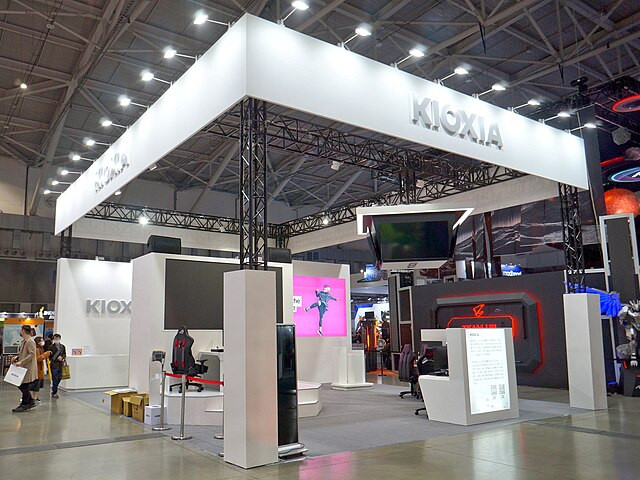Global semiconductor manufacturers Kioxia of Japan and Western Digital are considering consolidating their forces amid a chilly flash memory market. After several months of negotiations, they intend to reach an agreement on the merger of their flash memory businesses before August, according to sources cited by Bloomberg.
The sources also indicated that Western Digital's flash memory business will be spun off in a tax-free manner and merge with Kioxia. Western Digital is expected to hold just over 50% of the shares in the merged entity, with Kioxia executives assuming responsibility for daily operations, though Western Digital executives will be involved as well. The merged entity is slated to register in Japan. It will initially list on the Nasdaq, but the ultimate plan is for a listing in Tokyo.
Kioxia and Western Digital are hastening merger talks due to subpar earnings on both sides. According to a report from Business Korea, Kioxia recorded losses of 171.4 billion yen (approximately $1.3 billion) in the first quarter of this year, while Western Digital announced losses of 570 billion Korean won (around $427 million).
Since June 2022, the price of NAND flash memory has been on a downward trajectory, prompting both companies to cut their total NAND flash memory production by 30%. Kioxia and Western Digital have been competing against each other for years, and a merger of their storage businesses could help them stand up to Samsung.
Market research firm TrendForce data shows that as of last year, Kioxia had an 18.3% share of the global NAND flash memory market, with Western Digital at 13.4%, ranking them third and fourth respectively.
Together, the two companies would hold 31.7% of the market, putting them on nearly equal footing with market leader Samsung Electronics, which has a 33.4% share. SK Hynix sits in second place with an 18.5% market share. This implies that the NAND flash memory market, currently dominated by the two major Korean semiconductor manufacturers, would shift towards a tripartite competition including the US and Japan.
However, as Bloomberg reported, the final agreement has yet to be concluded, with the possibility of the timeline changing or negotiations ending without an agreement in place. Additionally, the deal could face regulatory hurdles.







